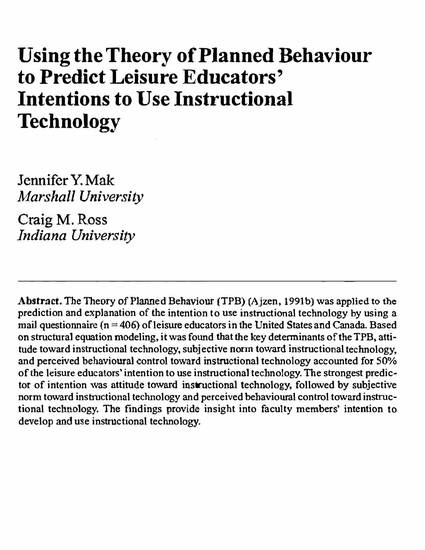
The Theory of Planned Behaviour (TPB) (Ajzen, 1991b) was applied to the prediction and explanation of the intention to use instructional technology by using a mail questionnaire (n = 406) of leisure educators in the United States and Canada. Based on structural equation modeling, it was found that the key determinants of the TPB, attitude toward instructional technology, subjective norm toward instructional technology, and perceived behavioural control toward instructional technology accounted for 50% of the leisure educators’ intention to use instructional technology. The strongest predictor of intention was attitude toward instructional technology, followed by subjective norm toward instructional technology and perceived behavioural control toward instructional technology. The findings provide insight into faculty members’ intention to develop and use instructional technology.

This is an Author's Accepted Manuscript of an article as published in Mak, J. Y., & Ross, C. M. (2003). Using the theory of planned behaviour to predict leisure educators’ intentions to use instructional technology. Leisure/Loisir, 28(3-4), 307-308, as published in LEISURE/LOISIR, 2003, copyright Taylor & Francis, available online at: http://www.tandfonline.com/10.1080/14927713.2003.9651317